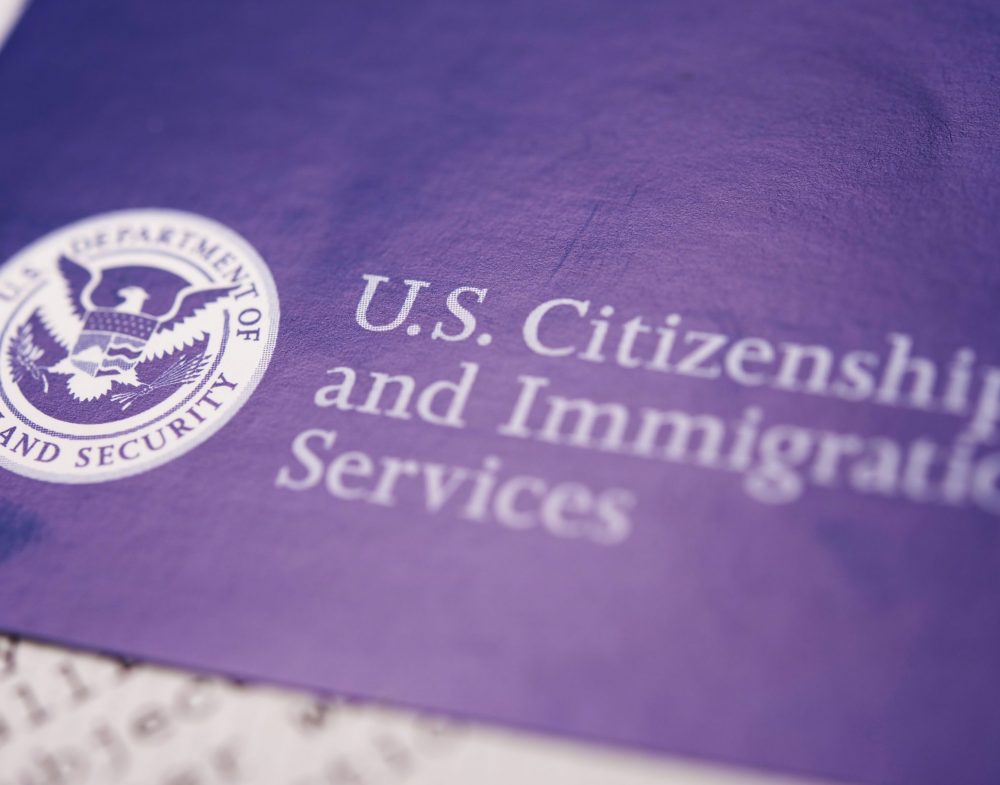Naturalization /Citizenship Attorney in Frederick MD
Sentelle Law is a Trusted Citizenship Attorney in Frederick MD serving Frederick MD, Hagerstown MD and Surrounding Areas.
The process of applying for and receiving American citizenship can be complex and confusing. At the Frederick MD area immigration law office of Sentelle Law, we can help individuals determine whether they are eligible for citizenship / naturalization and take the steps necessary to complete their immigration journey.
We can work with you to determine the best way for you to work to acquire American citizenship, and represent you throughout the entire process. Whether made a mistake on your application, have a prior criminal conviction, or have other concerns, our naturalization lawyer is here to help.
You can achieve citizenship in multiple ways: being born in the U.S. or certain American territories, having parents who were citizens at the time of your birth if you were born abroad, and applying for naturalization. A citizenship certificate is given to someone who acquires citizenship through their US parents, which a certificate of naturalization is obtained by someone who becomes a citizen through naturalization.
Contact Sentelle Law, a trusted Citizenship Attorney in Frederick MD, today to schedule a consultation regarding your citizenship / naturalization journey.


Are you Interested in Becoming an American Citizen?
Sentelle Law is a Dependable Citizenship / Naturalization Law Firm
Deciding to become a U.S. citizen is one of the most important decisions an immigrant can make. Depending on your situation, there may be different ways to obtain citizenship.
- Naturalization is the process by which U.S. citizenship is granted to a lawful permanent resident after meeting the requirements established by Congress in the Immigration and Nationality Act (INA).
- Acquisition of citizenship is obtained through U.S. citizenship parents either at birth or after birth, but before the age of 18.
Sentelle Law is a citizenship attorney in Frederick MD experienced in all types of citizenship cases including:
- Individuals who were born to U.S. citizens in a foreign country
- Individuals who were adopted by American parents
- Individuals whose parents naturalized and now seeking citizenship status
- Citizens have the right to vote in all state and national elections
- Eligibility for social welfare benefits is not as restrictive for citizens as it is for lawful permanent residents
- Bringing other family members to this country becomes faster and easier
- Citizenship can help you avoid deportation and hassles
Citizenship Requirements:
In order to become a U.S. citizen, all naturalization applicants must meet the following requirements (unless they qualify for an exemption or apply based on their U.S. military service):
- Be of the minimum required age (typically, at least 18)
- Continuously and physically live in the United States as a green card holder for a certain number of years
- Establish residency in the state or U.S. Citizenship and Immigration Services (USCIS) district where they intend to apply
- Have “good moral character”
- Be proficient in basic spoken and written English and demonstrate knowledge of U.S. history and government
- Register for military service (if a male of a certain age) and be willing to perform civil service when required
- Swear allegiance to the United States
Once you become a citizen of the United States, you may sponsor your spouse, parents, sons and daughters as well as your brothers and sisters for lawful permanent residence in the U.S.
Naturalization Process:
Step 1. Determine if you are already a U.S. citizen
Step 2. Determine if you are eligible to become a U.S. citizen
Step 3. Prepare your Form N-400, Application for Naturalization
Step 4. Submit your Form N-400 and pay your fees
Step 5. Go to your biometrics appointment, if applicable
Step 6. Complete the interview
Step 7. Receive a decision from USCIS on your Form N-400
Step 8. Receive a notice to take the Oath of Allegiance
Step 9. Take the Oath of Allegiance to the United States
Step 10. Understanding U.S. citizenship





